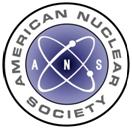ANS Supports US-Vietnam Nuclear Export Agreement
Expanding U.S. nuclear exports a key component of effective nonproliferation policy
-3 2x1.jpg)
A message from Curtiss-Wright
High-Temperature neutron flux detectors for Generation IV reactors and SMRs
Expanding U.S. nuclear exports a key component of effective nonproliferation policy
The American Nuclear Society's Nuclear Non-Proliferation Technical Group (NNTG) will host a distinguished two-part panel session on the Middle East as part of its embedded topical at the 2013 ANS Winter Meeting and Nuclear Technology Expo in our nation's capitol.
Nuclear Nonproliferation, International Safeguards, and Nuclear Security Challenges in the Middle East
On September 11, the National Nuclear Security Administration (U.S. Department of Energy) hosted a public meeting in Chattanooga, Tenn., concerning its Supplemental Environmental Impact Statement on the disposition of surplus weapons-grade plutonium as mixed-oxide (MOX) fuel for use in power reactors. You may have seen the ANS Call to Action for the hearing and perhaps read the ANS position statement or background information.
The draft SEIS meeting for disposition of surplus weapons plutonium in MOX fuel started out relatively smoothly-lots (and I mean lots) of pro-nuclear folks in the room; my initial estimates would put the pro-nuclear folks from the University of Tennessee and Chattannooga State University at over half the crowd present. No zombie sightings as of yet.
Hi folks, Steve Skutnik here-you may know me from The Neutron Economy blog. I'm also currently an assistant professor of nuclear engineering at the University of Tennessee. I'll be here with Suzy Hobbs-Baker (of PopAtomic Studios) and Laura Scheele live-blogging the public hearing on the use of surplus weapons plutonium in MOX fuel. I've also got a healthy contingent of eager students from the University of Tennessee here as well, eager to speak up for the nonproliferation benefits of disposing of surplus plutonium in MOX fuel.
WHO:
The U.S. doesn't want to hear about it
 On Thursday, June 28, the American Nuclear Society's Board of Directors formally adopted a position statement entitled U.S. Global Nuclear Leadership through Export-Driven Engagement. ANS position statements reflect the Society's perspectives on issues of public interest that involve various aspects of nuclear science and technology. The text of the June 2012 position statement is below, and the full list of ANS positions statements can be accessed via the ANS website by clicking HERE.
On Thursday, June 28, the American Nuclear Society's Board of Directors formally adopted a position statement entitled U.S. Global Nuclear Leadership through Export-Driven Engagement. ANS position statements reflect the Society's perspectives on issues of public interest that involve various aspects of nuclear science and technology. The text of the June 2012 position statement is below, and the full list of ANS positions statements can be accessed via the ANS website by clicking HERE.
On Wednesday, June 6, Dr. Mark T. Peters appeared on behalf of the American Nuclear Society before the U.S. House Foreign Affairs Subcommittee on Asia and the Pacific. Peters is the Deputy Laboratory Director for Programs at Argonne National Laboratory and testified at the invitation of the subcommittee.
 In 2009, the United States and the United Arab Emirates (UAE) signed a "123" agreement, which allowed the transfer of US nuclear technology (e.g., reactors, etc.) to the UAE. As a condition of the agreement, the UAE gave up all rights to enrich uranium or reprocess spent nuclear fuel, now and at any point in the future. Thus, the UAE agreed to give up significant rights that are granted to it as a signee of the nuclear Non-Proliferation Treaty (NPT).
In 2009, the United States and the United Arab Emirates (UAE) signed a "123" agreement, which allowed the transfer of US nuclear technology (e.g., reactors, etc.) to the UAE. As a condition of the agreement, the UAE gave up all rights to enrich uranium or reprocess spent nuclear fuel, now and at any point in the future. Thus, the UAE agreed to give up significant rights that are granted to it as a signee of the nuclear Non-Proliferation Treaty (NPT).
An advanced reactor could be used to consume 112 tonnes of weapons grade material
Domestic liability laws and international issues may put limits on the country's ambitious plans to build new reactors

The fuel cycle is a frequent topic in the nuclear blogsphere
This is the 40th Carnival of Nuclear Energy Blogs. The carnival features blog posts from the leading U.S. nuclear bloggers and is a roundup of featured content from them.
The Society opens its 9th international section
No deals for reactor components without